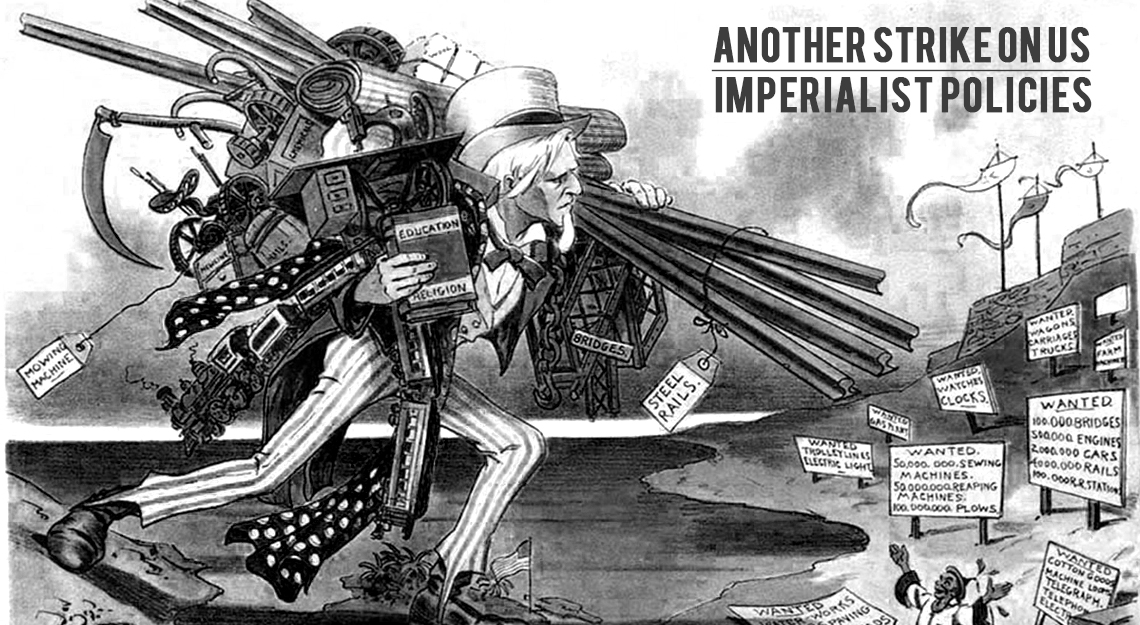
Another strike on U.S.’ imperialist policies
The three-day deadline set by the strongest political party in Yemen was came and went, and the political factions were still unable to come to an agreement after the scripted resignation of former President Abd Rabbuh Mansur Hadi and his Prime Minister. It was very much expected that there would be a solution and the country would not be left in chaos at the hands of foreign actors, but the fact that it was the Houthis who filled the political vacuum left by the resignation was a serious game changer in the region. On February 6th, 2015, Sayyid Abd al-Malik Houthi announced the Constitutional Declaration for the country amid mass Yemeni support. The historical move shook nations, especially the United States and Great Britain, who, for a number of reasons, did not want the Houthis to be represented in any Yemeni government.
Over the last few decades, Yemen has been one of the strongest allies of the United States in the Middle East. The way the West planned out things in Yemen during the revolution is worth applause. The West proved to the world that changes in the power dynamics of the region occurs at their discretion for the most part, and to silence and fool the masses, it also has a plan B and C, should plan A not work. Without elaborating too much, a prime example is Egypt. Hosni Mubarak was supported by the United States for decades. After Mubarak, it supported Muhammad Morsi. When he was deposed, the United States put its weight in the corner of General Abd al-Fattah Sisi. All of this was done in the name of revolution. Following a popular revolution in in Yemen, Ali Abd Allah Saleh was overthrown. Abd Rabbuh Mansour Hadi, Saleh’s successor, was not able to pull the country out of chaos. The United States continued its drone strikes in the country, and the puppet government under Hadi continued supporting foreign interference like his predecessor.
It is clear from the statements of American president Barack Obama how much having control in the Yemeni government mattered to the interests of the United States. Obama made his intentions clear that the drone strikes in the country would continue against the so-called militants in Yemen. It will be interesting to see how the Obama administration will react to the new Houthi government in Yemen. The Houthis have a clear stance against America and Israel: two of their more popular slogans are “Death to America’” and “Death to Israel”. Sayyid Houthi has made it clear that he will have good relations with neighbors as long as there is no interference involved. He has also shelved cooperation with Gulf countries, especially Saudi Arabia. In other words, the result of a Houthi-led Yemen is a change in the balance of power in the region. Within the first few days of forming the government, the Supreme Presidential Council met with the ambassadors of Germany, Russia and Egypt, possibly signaling something that is not just transitional government but the formation of a new Yemeni establishment that is completely different from the previous ones.
It is also important to note that after the Houthis took power, the embassies of the United States of America, Great Britain and France were immediately shut down and their officials were ordered to return home immediately. Two conclusions can be derived from these turn of events. First, the relationship between the West and Yemen has drastically changed, and neither side trusts the other. Second, the West might ignore Yemeni sovereignty and continue to conduct drone strikes in the country. We are possibly witnessing the emergence of another power entity that will be in direct opposition of the West’s strategy in the region. Looking at the Houthis’ history, they will sit quietly if any action is taken in Yemen without their permission. Despite that, the Houthis have some challenges to face. First and foremost is the condemnation of Western and Saudi infiltration. Some of the southern tribes have not accepted the new government. Worst of all, Zionist-backed ISIL terrorists have already made their presence known and felt in Yemen. The events of the next few days will reveal more, but one thing is guaranteed: that we have just witnessed a historical transfer of power in a significant and strategic part of the Arab world.







